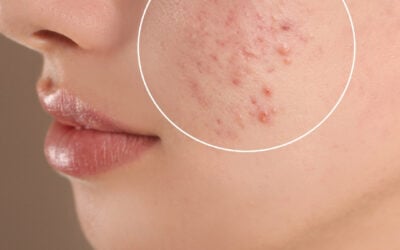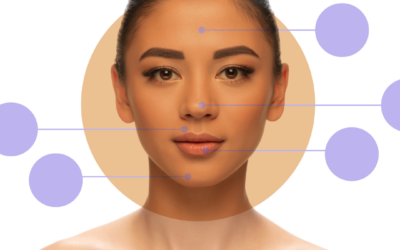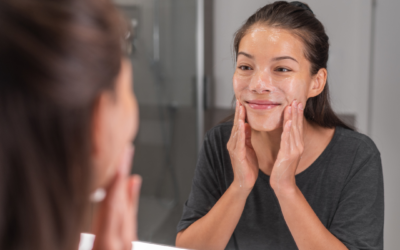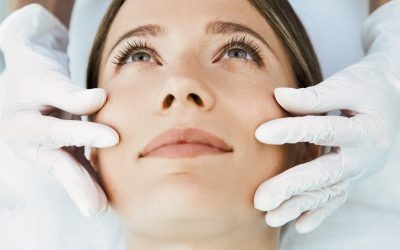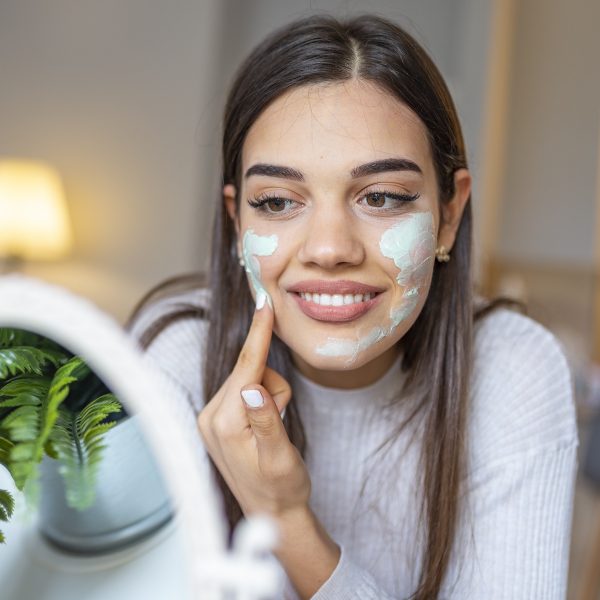
Acne can affect people of all ages but is often most prominent during the teenage years. What causes a pimple is basically the same regardless of your age. When you combine the skin’s oil, dead skin cells, and bacteria, a pore becomes clogged, and a pimple forms. Some are small, near the surface, and go away pretty quickly, while others are deeper in the skin, more painful, and take longer to disappear.
There are two big factors that affect your odds of developing acne:
- Family History: If your mom or dad had teenage acne, you are likely to develop it as well in your teens. If they suffered from acne as adults, your likelihood of experiencing it in adulthood is also increased.
- Hormones: When hormones surge—which happens shortly before and during teenage years—breakouts become more likely. This is a primary reason why, for many people, acne improves after their teenage years – hormones have leveled off and no longer fuel the breakouts.
Acne Prevention for Teens
Other than genetics and hormones, there are also other elements that can contribute to acne – most of which are avoidable. Acne prevention thus requires a multi-pronged approach:
- Use cosmetics that are non-comedogenic, meaning that they won’t clog pores.
- Avoid tight-fitting clothing, hats, and backpacks. The friction and constant rubbing of your skin can trap sweat, dirt, and bacteria in your pores, increasing your risk of acne.
- Diet also plays a role in acne. To help prevent future breakouts, try to reduce or eliminate dairy and high glycemic foods while consuming more fruits, vegetables, and lean proteins.
- Stop picking or squeezing acne. Popping pimples spreads bacteria and increases inflammation, often leading to more breakouts and potentially permanent scarring.
- Avoid touching your face. While it’s usually an unconscious action, it’s time to be aware of just how often you do it. Touching your face constantly can quickly make it very dirty.
- Change out of sweaty clothes and shower immediately after exercising to prevent your pores from clogging.
Acne Treatment for Teens
According to Dr. Christian Millett, board-certified dermatologist with Forefront Dermatology, “The best acne treatment for teens starts with a proper skincare regimen. It is very important to incorporate regular cleansing of the skin — both morning and nighttime, and also after any sweat-inducing activity.”
When breakouts do happen, there are a variety of acne treatments to choose from. Dr. Millett suggests that when looking for a product, choose one that includes any of the following ingredients:
- Benzoyl Peroxide: effective at killing acne-causing bacteria
- Salicylic Acid: exfoliates to get rid of dead skin cells
- Glycolic Acid: helps remove oil and dirt on the skin
“While it’s tempting to take a ‘more is better’ approach by using a lot of different products, doing so may over-dry your skin, which could make acne worse, “ added Dr. Millett. “Start with one product and allow it time to work (at least 4-6 weeks or more) before changing or adding another treatment.”
While following a regular skincare routine and taking preventative measures is effective for some individuals, it will not work for everyone. Sometimes prescription medications, including oral and topical treatments, are necessary to effectively treat acne. If you, or your child, are struggling with acne, the skin health experts at Forefront Dermatology are ready to help. To find the Forefront dermatologist nearest you, visit the locations page today.

